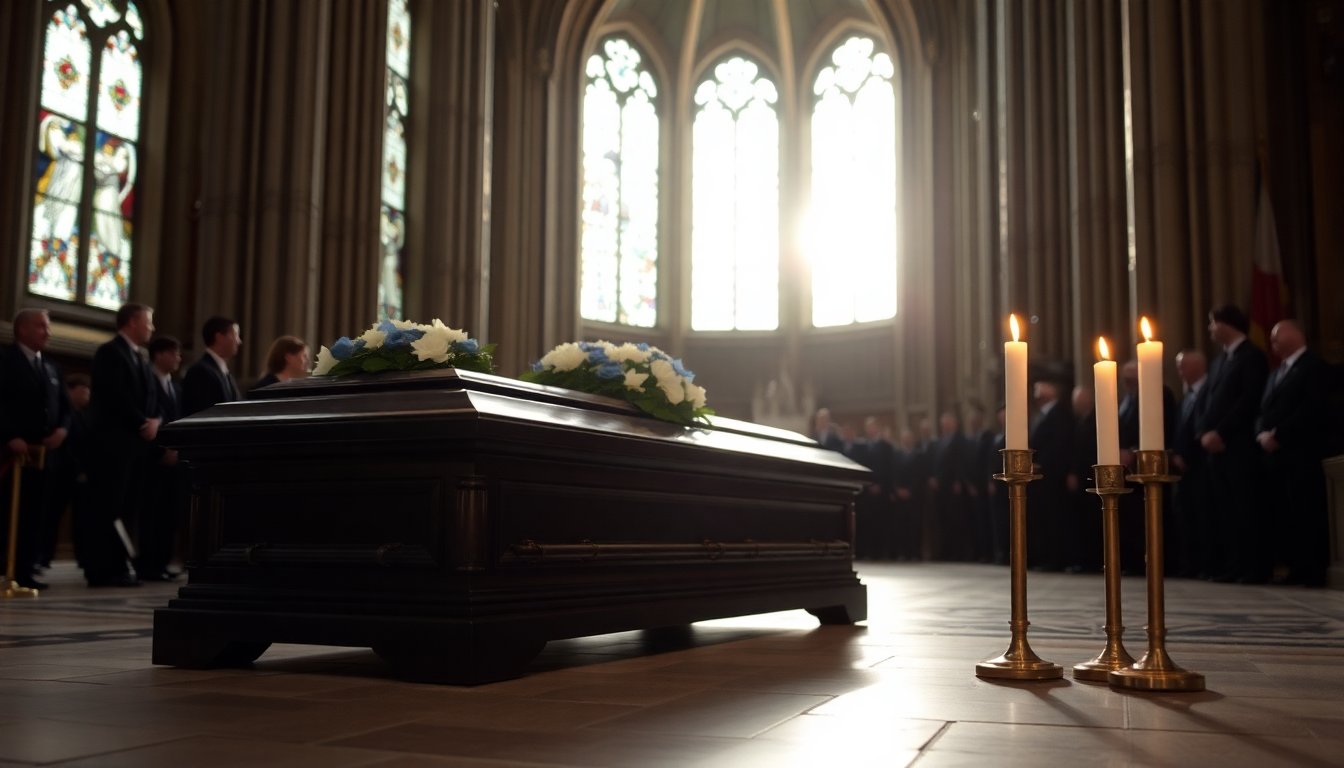Table of Contents
The funeral of Richard B. Cheney
Washington National Cathedral served as the venue for a significant event marking the conclusion of an era in American politics. The funeral service for Richard B. Cheney, the 46th Vice President of the United States, prompted reflection on his substantial influence during a period of crisis and transformation. Cheney, who died at the age of 84, was a notable figure in U.S. politics from the late 20th century until his passing, shaping policies that affected millions.
Honoring a distinguished career
Richard B. Cheney’s career in public service spans more than three decades, marked by several significant roles. He served as Vice President under George W. Bush from 2001 to 2009. Prior to this, he was the 17th Secretary of Defense from 1989 to 1993, during which he played a vital role in events like the Persian Gulf War. His career also included impactful positions as Chief of Staff for President Gerald Ford and as a U.S. Representative for Wyoming.
A life dedicated to service
Friends and family of Cheney remember him as a man committed to his country and loved ones. His daughter, Liz Cheney, along with other family members, will deliver tributes at the service. They will reflect on the values he instilled in them, including love for the nation and a commitment to living honorably. According to Jeremy Adler, a family spokesperson, Cheney exemplified integrity, teaching his children and grandchildren the significance of courage and kindness.
A gathering of notable figures
The memorial service, scheduled for 11 a.m. EST, is an invitation-only event, creating an intimate setting for those who knew Richard B. Cheney. Attendees will include prominent political figures and former leaders, highlighting Cheney’s importance in the political arena. High-profile guests, such as former President Joe Biden, are expected to attend, making this occasion a moment of unity amid a divided political climate.
Reflections from former presidents
Former President George W. Bush expressed his condolences regarding Cheney’s passing, stating, “The death of Richard B. Cheney is a loss to the nation and a sorrow to his friends.” Bush’s remarks resonate with many who recognized Cheney’s steadfast commitment to his responsibilities and his country. Cheney’s legacy is characterized by significant national service, and he is remembered as a key figure in American governance.
Legacy and remembrance
The funeral service will be broadcast for those unable to attend in person, allowing the public to honor Cheney’s contributions to the nation. The service will also be streamed live on the Cathedral’s website and YouTube channel, ensuring his legacy reaches a wider audience. As the nation reflects on Cheney’s life, it is essential to acknowledge the complex nature of his political journey, including the controversies and challenges he faced.
Cheney’s involvement in controversial policies following the September 11 attacks and his defense of surveillance practices drew both criticism and support. He navigated the turbulent waters of American politics with a commanding presence, and his impact on national security policies will likely be debated for years to come.
As the service concludes, attendees will remember Richard B. Cheney not only as a prominent politician but also as a devoted husband, father, and grandfather. He leaves behind his beloved wife, Lynne Cheney, their daughters, and seven grandchildren, who will continue to honor his legacy.
The funeral held at the Washington National Cathedral reflects Cheney’s life of service. It serves as a moment for mourning, reflection, and celebration of a man who significantly impacted history. The tributes offered on this day will echo, reminding us of the lasting influence of a committed public servant.


